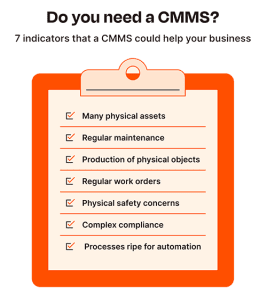Improving as a facility manager involves a combination of honing technical skills, developing leadership abilities, and fostering effective communication and problem-solving capabilities. Here are some steps you can take to become a better facility manager:
Acquire Technical Knowledge: Gain a thorough understanding of building systems, maintenance procedures, safety regulations, and other technical aspects relevant to facility management. Stay updated on industry trends, best practices, and emerging technologies.
Develop Leadership Skills: Cultivate leadership qualities such as decision-making, delegation, and conflict resolution. Effective facility management often requires coordinating teams, managing projects, and motivating staff to achieve common goals.
Enhance Communication Skills: Improve your communication skills to effectively convey information, delegate tasks, and resolve conflicts. Clear and open communication fosters collaboration and ensures that all stakeholders are aligned on objectives and expectations.
Prioritize Safety and Compliance: Make safety a top priority in facility management. Stay informed about relevant regulations and standards, conduct regular safety inspections, and implement appropriate training programs to ensure compliance and mitigate risks.
Embrace Technology: Familiarize yourself with facility management software, computerized maintenance management systems (CMMS), and other technological tools that can streamline processes, automate tasks, and provide valuable data for decision-making.
Focus on Customer Service: Treat tenants, occupants, and other stakeholders as valued customers. Be responsive to their needs, solicit feedback, and strive to exceed expectations in terms of service quality and responsiveness.
Practice Proactive Maintenance: Adopt a proactive approach to maintenance by implementing preventive maintenance programs and conducting regular inspections to identify and address issues before they escalate. This helps minimize downtime, reduce repair costs, and prolong the lifespan of assets.
Cultivate Problem-Solving Skills: Develop strong problem-solving skills to effectively address challenges and overcome obstacles encountered in facility management. Approach problems methodically, seek input from relevant stakeholders, and explore creative solutions.
Seek Professional Development Opportunities: Take advantage of training programs, certifications, workshops, and networking events to further develop your skills and expand your knowledge base. Continuous learning is key to staying relevant and effective in the field of facility management.
Stay Organized and Efficient: Develop efficient workflows, establish clear processes and procedures, and leverage tools such as checklists and calendars to stay organized and manage tasks effectively. Time management and prioritization skills are essential for juggling multiple responsibilities in facility management.
By focusing on continuous learning, refining your skills, and adopting a proactive and customer-centric approach, you can become a better facility manager and contribute to the success of your organization.
Facility management is a crucial role in any organization, and while some may be content with being good facility managers, there are those who strive to be great. So what really separates a great facility manager from just a good one? In this blog, we will explore the key qualities and practices that set great facility managers apart.
1. Embrace a Proactive Mindset
A good facility manager will handle day-to-day tasks and put out fires as they arise. However, a great facility manager goes beyond that reactive approach and adopts a proactive mindset. They focus on prevention and take measures to avoid fires altogether. By being organized and maintaining a running log of work for their clients, great facility managers can stay on top of tasks and expenses, constantly seeking ways to improve workflow.
Transitioning from reactive to proactive thinking is a fundamental step for becoming a great facility manager. It means always thinking ahead, identifying potential issues, and taking preventive actions to mitigate risks. By doing so, they can minimize disruptions and save time and resources in the long run.
2. Have Plans in Place
A good facility manager may cross their fingers and hope for the best when it comes to equipment failures or unexpected issues. On the other hand, a great facility manager already has plans in place for such situations. They understand that regardless of how much preventative maintenance is done, some issues are inevitable.
Great facility managers know exactly what to do and how to respond when problems arise. They have contingency plans and action steps ready to go. By having proactive strategies in place, they can effectively handle 80% of the issues that may occur, reducing the impact on daily operations.
3. Foster Autonomy in Your Team
A good facility manager oversees a team of technicians, ensuring tasks are completed. However, a great facility manager goes beyond mere oversight. They empower their team members to be autonomous and strive for excellence.
As a facility manager, you are not just an overseer but a leader and mentor. Great facility managers exhibit strong leadership skills, enabling their team to grow and improve. Rather than holding their employees’ hands every step of the way, they provide guidance, teach best practices, and allow their team members to navigate the challenges on their own.
By fostering autonomy, great facility managers create a culture of continuous improvement and personal growth within their team. They trust their employees’ abilities and provide them with the tools and knowledge to succeed.
In conclusion, becoming a great facility manager requires a proactive mindset, preparedness for unexpected situations, and the ability to empower and lead a team. By adopting these qualities and practices, you can elevate your facility management skills and make a significant impact on the efficiency and success of your organization.

